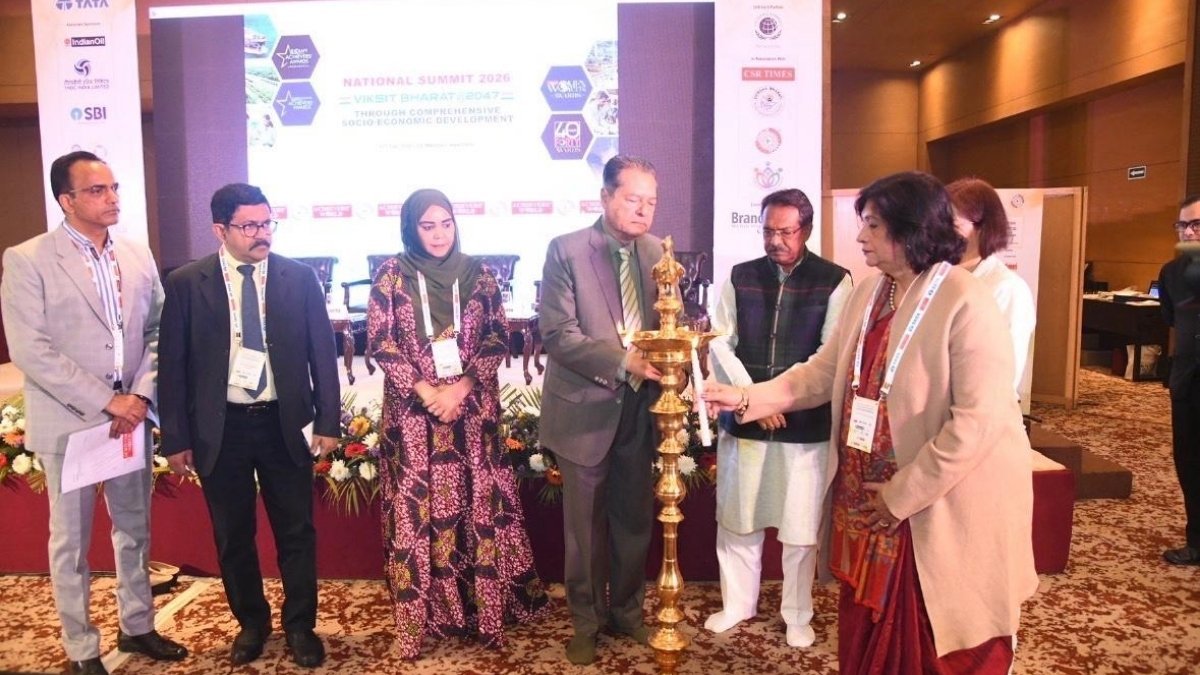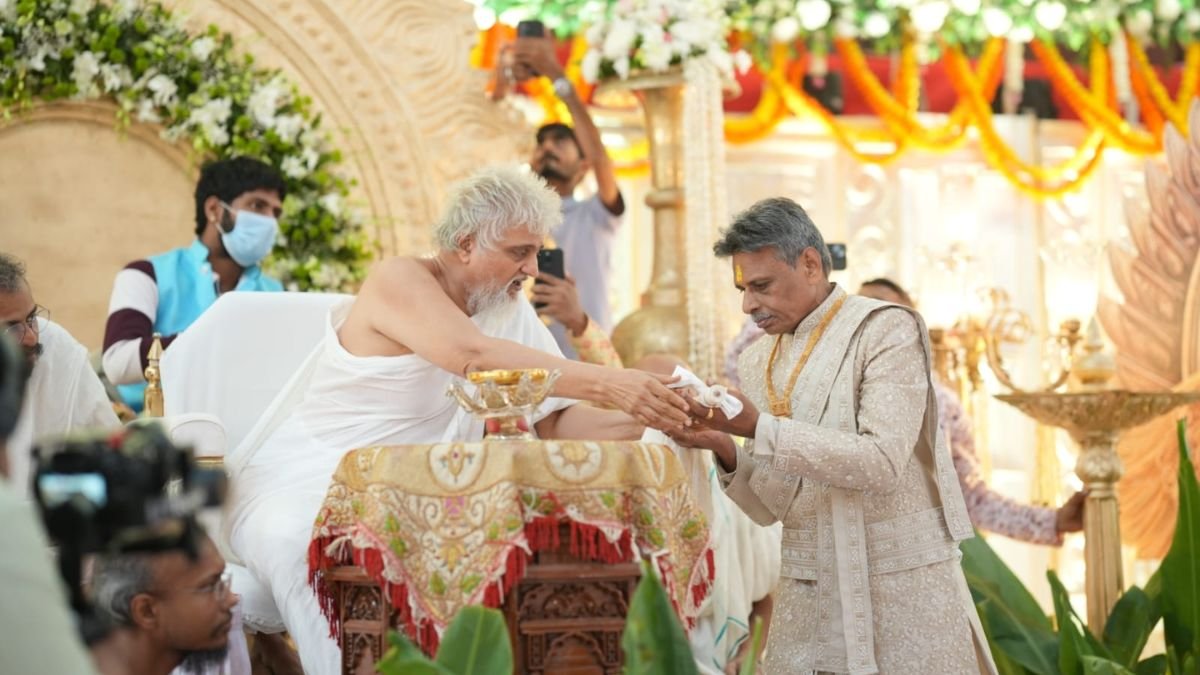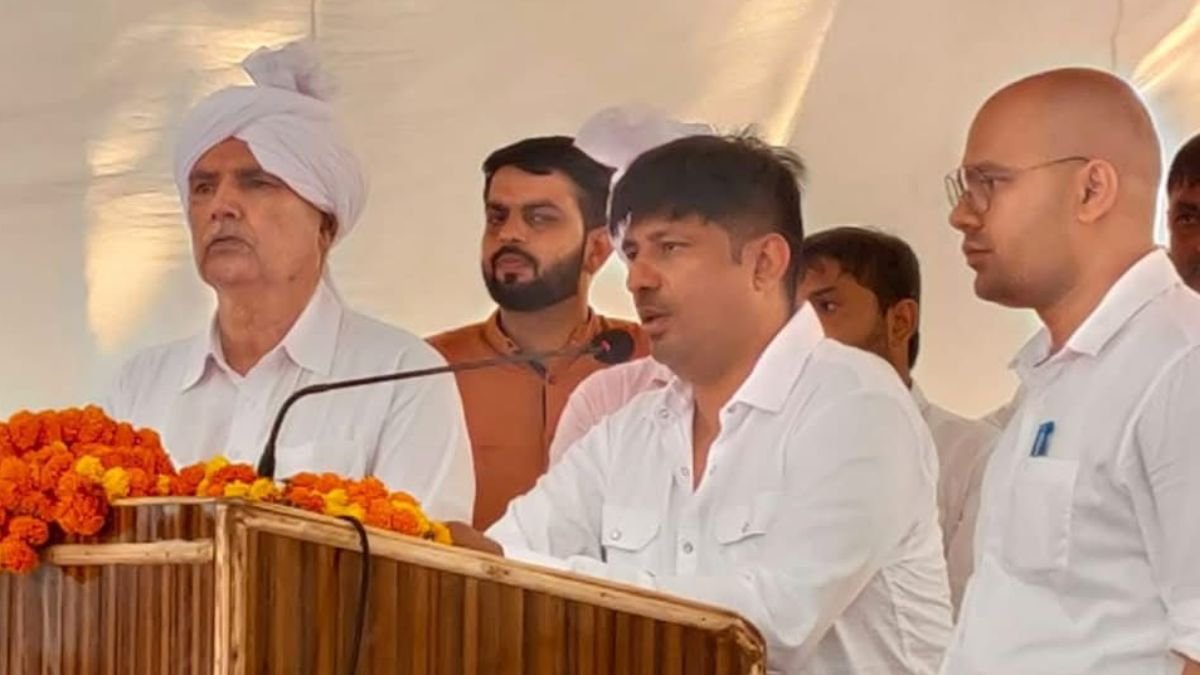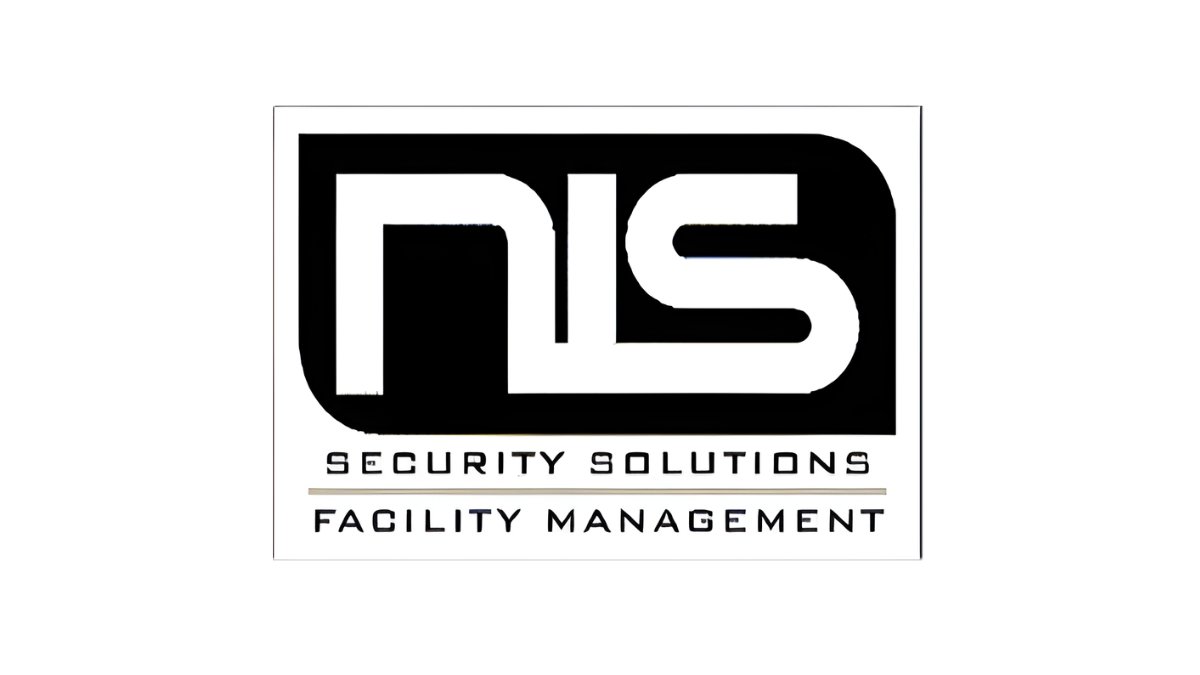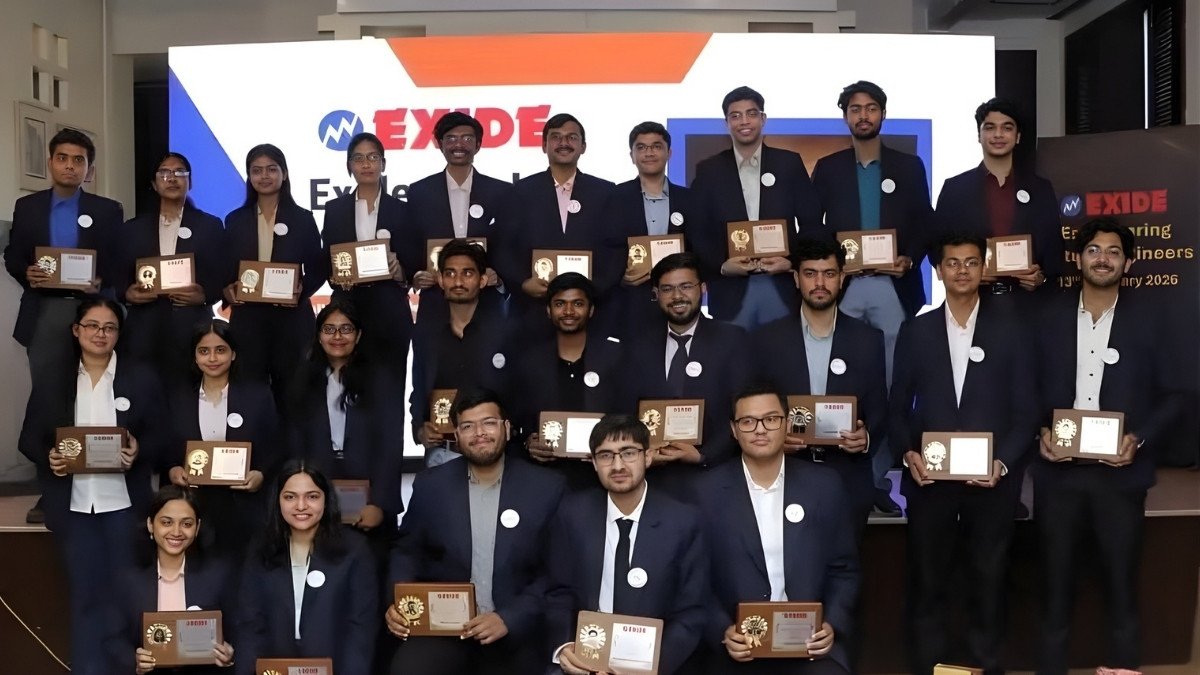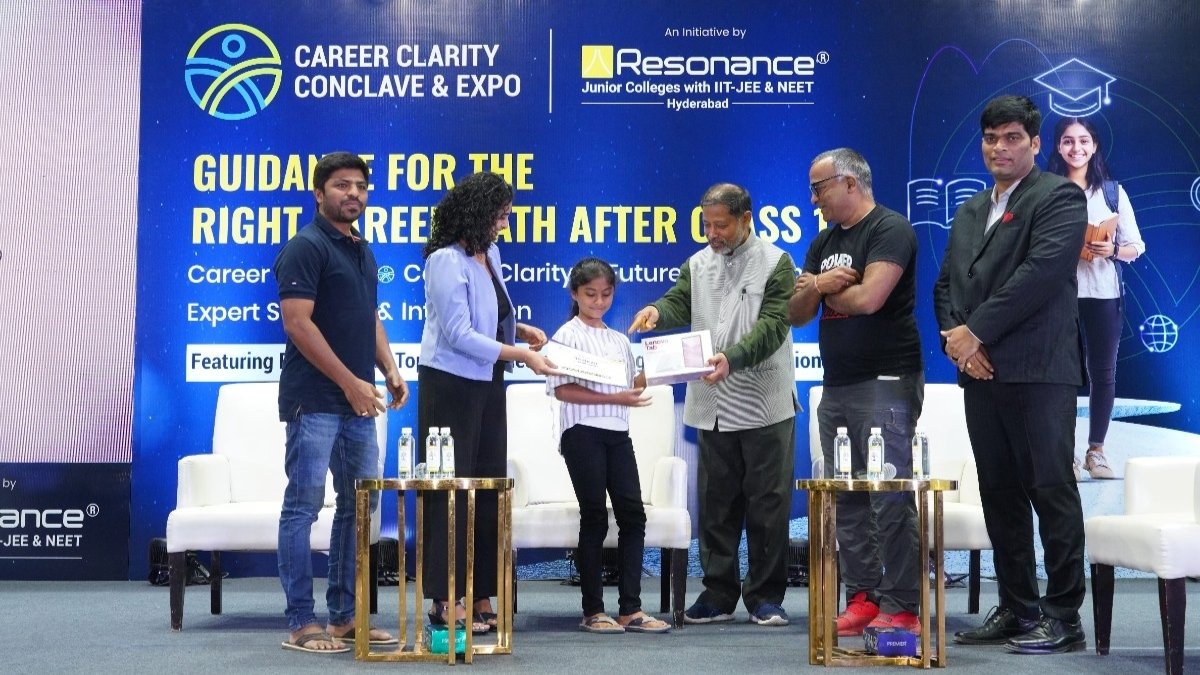IDRC’s 4th Arbitration in India Conclave 2025: We will Strengthen Institutional Arbitration, Law Min. Meghwal
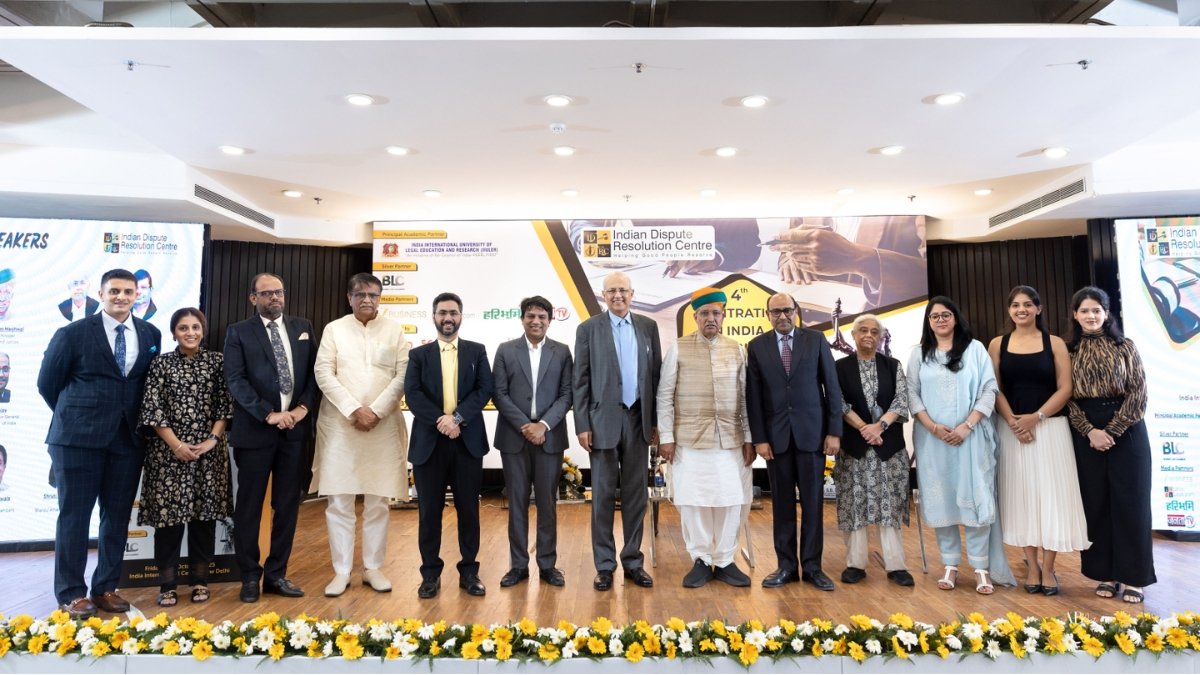
IDRC’s 4th Arbitration in India Conclave 2025, Law Min. Meghwal, HMJ Manmohan, Sh. OP Dhankar & Ors
New Delhi [India], November 7: The Indian Dispute Resolution Centre (IDRC), in collaboration with the Bar Council of India’s India International University of Legal Education and Research (IIULER), successfully hosted the “4th Arbitration in India Conclave 2025” at the India International Centre, New Delhi. Supported by CIArb and Vienna International Arbitration Centre, Austria. The Conclave brought together judges, legal luminaries, policymakers, and senior practitioners to deliberate on the theme “Autonomy and Accountability in Arbitration: Institutional Arbitration is the Way Forward.”
Hon’ble Union Minister for Law and Justice, Shri Arjun Ram Meghwal, delivered the keynote address, outlining the Government’s reform-oriented vision for ADR. Stating that “Arbitration, Mediation, and Conciliation are essential tools for strengthening India’s justice delivery and economic growth.” Citing the Mediation Act, 2023 and the forthcoming amendments to the Arbitration and Conciliation Act, he said these initiatives would “make India a preferred seat for both domestic and international arbitration.”
Shri Meghwal remarked that ADR mechanisms reflect India’s cultural and legal heritage, noting that “from Lord Krishna’s mediation in the Mahabharata to today’s institutional mechanisms, India has always valued resolution through dialogue and alternative modes.” He called upon arbitration institutions to ensure accessibility, affordability, and integrity, noting that “judicial intervention should be limited, and efficiency must define India’s dispute resolution landscape.”
Hon’ble Justice Manmohan, Supreme Court, in his valedictory address, called for institutional arbitration to evolve as a transparent and predictable system.
Praising IDRC’s achievements, noting that the Centre had conducted over 3,000 arbitrations in five years and has become a “symbol of India’s commitment to establish an efficient and credible ADR ecosystem.”
Justice Manmohan observed that “Courts must act as facilitators, not barriers, to arbitration. Excessive judicial interference erodes the very purpose of alternative dispute resolution.”
Highlighting the benefits of Institutional Arbitrations over ad hoc proceedings, he went on to suggest that a moratorium should be placed on all ad hoc arbitrations for a certain period so that institutional arbitration can be strengthened. Referring to the Justice BN Shrikrishna Committee Report, he said India should promote arbitration institutions to become a global ADR hub.
He proposed strict timelines for enforcing awards under Sections 34 and 37 of the Arbitration Act to ensure time-bound disposal of arbitration challenges. The Hon’ble Judge also urged the Government to revisit the Finance Ministry’s circular restricting arbitration only to disputes valued less than Rs. 10 Crore, stating that “the Government must remain a part of the arbitration movement, not apart from it.”
Panel Discussion was on “Autonomy and Accountability in Arbitration: Institutional Arbitration is the way forward” moderated by Dr Shashwat Bajpai, Founder Partner, DSRB Law Chambers, with panellists:
- Mr S.D. Sanjay, Additional Solicitor General of India, Supreme Court
- Ms Anuradha Dutt, Senior Partner, DMD Advocates
- Mr Ayush Agarwala, Partner, Bombay Law Chambers
- Ms Shruti Sabharwal, Partner, Shardul Amarchand Mangaldas
Panellists unanimously agreed that institutional arbitration ensures quality, neutrality, and procedural discipline, unlike ad hoc arbitrations that often face delays and cost overruns.
Ms Anuradha Dutt emphasised that “India can only become a true arbitration hub if it combines institutional discipline with a predictable judiciary.”
Mr S.D. Sanjay highlighted that “institutional systems help prevent arbitral fee abuse, avoid delays and promote fairness.”
Ms Shruti Sabharwal noted that “structured oversight, award scrutiny, and ethical accountability make institutional arbitration inherently superior to ad hoc ones”
Mr Ayush Agarwala added that “efficiency, diversity among arbitrators, and digital adoption will determine the future success of arbitration in India.”
Delivering the Welcome Address, Ved Prakash Sharma, Advocate and Co-Chairman, BCI applauded the growing role of arbitration in modern dispute resolution. He highlighted the collaboration between BCI and IDRC, stating that their joint efforts have been “instrumental in promoting awareness, education, and reforms that strengthen India’s arbitration ecosystem.”
Ms Sumedha Sindhu Rathi, Head of Operations and Member Secretary, Advisory Board, IDRC, welcomed the dignitaries and participants, outlining IDRC’s key functions and the benefits of Institutional Arbitration. Mr Divyansh H. Rathi, Hony. Secretary of IDRC and Managing Partner, Lexidem and Rathi, expressed gratitude to all guests and reaffirmed IDRC’s commitment to advancing institutional arbitration and making India a global hub for credible, efficient, and technology-driven dispute resolution.
About IDRC
The IDRC is a Not-for-profit ADR Institution registered with the Ministry of Corporate Affairs, NITI Aayog and empanelled with the Ministry of Law and Justice, GOI. Established in 2020, IDRC has handled over 3,000 arbitration and mediation cases through physical and virtual platforms. It continues to promote best practices, innovation, and accessibility in ADR. IDRC’s educational wings, the Indian Institute of Arbitration and the Indian Institute of Mediation, have been an integral part of the Conclaves as Knowledge Partners. LatestLaws.com, IDRC’s sister organisation, celebrated its 10th Anniversary at the 4th Arbitration in India Conclave.
If you have any objection to this press release content, kindly contact pr.error.rectification@gmail.com to notify us. We will respond and rectify the situation in the next 24 hours.

